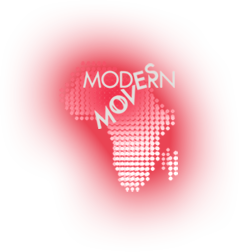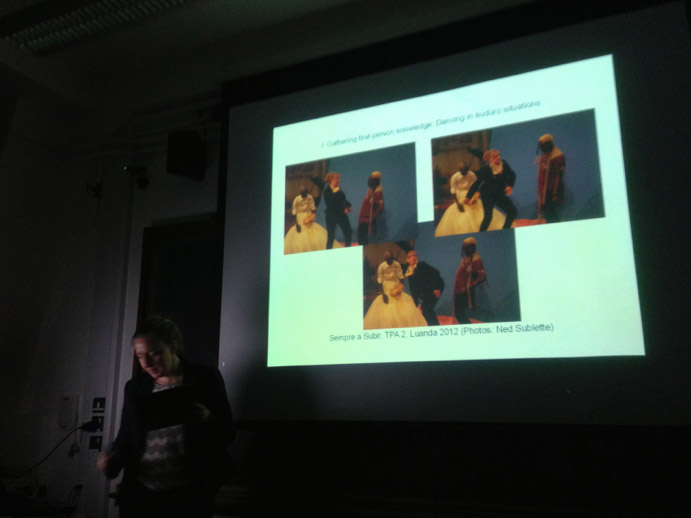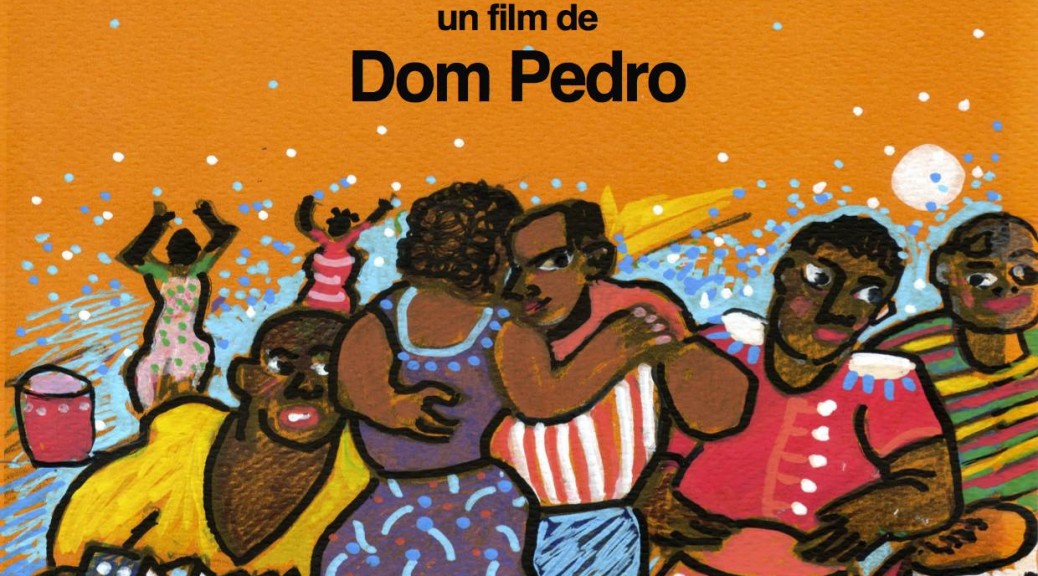For our first meeting, we were delighted to host our Associated Researcher Stefanie Alisch, musicologist and DJ from Berlin speaking on ‘epistemologies of dance research: investigating kuduro in Luanda’.
Stefanie’s work encompasses research, teaching, publications and creative projects on kuduro, groove, broken beat, music and bodily-performative practices in the Black Altantic, DJ culture, farsi pop, cultural transfer in the Portuguese-speaking realm, and the iconography of music and dance.
About her talk, she said: ‘Kuduro is hard electronic music from Angola complete with accompanying dance moves called toques. Kuduro is a highly visual music culture: dance, sartorial extravagance and posing are instrumental to it. Through naming and kinetic mimesis the toques closely link kuduro music with day-to-day life in the capital Luanda. Toques are chained into rapid acrobatic dance sequences that often transgress social boundaries of space use, violence or morality. An intense impetus called carga (‘electrical charge, load, burden, weight, ammunition’) marks a good kuduro performance.’
In her talk to the Moving Group, Stefanie presented photo and video material of several instances of her own dancing during research trips to Luanda (Angola). Through this material she introduced us to her method of ‘interactive video interview’, where conversation intertwines with dance in front of a video camera.
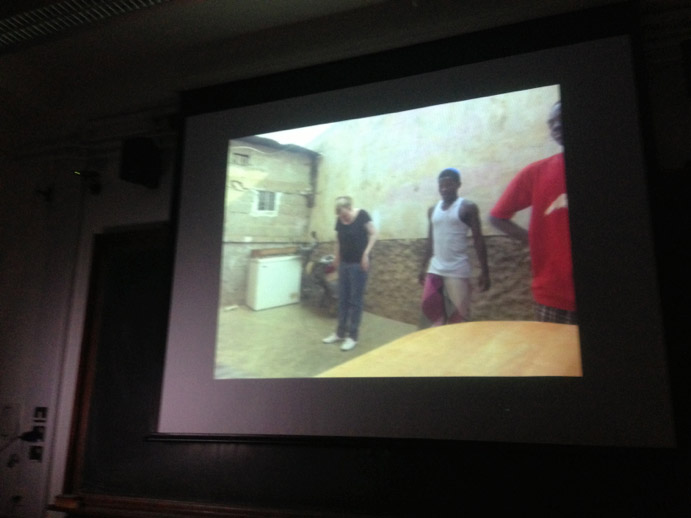
We were treated to videos of Stef rehearsing kuduro dance sequences in quintals (backyards) of Luanda homes, participating in the video-clip ‘Gingubinha’ of Fogo de Deus and Manda Chuva and being called to perform on stage and in front of TV cameras by star kudurista duo Príncipe Ouro Negro (Prince Black Gold) and Presidente Gasolina (President Oil- the names are inspired by the mineral wealth fuelling Angola’s post-war economic boom). Respect!
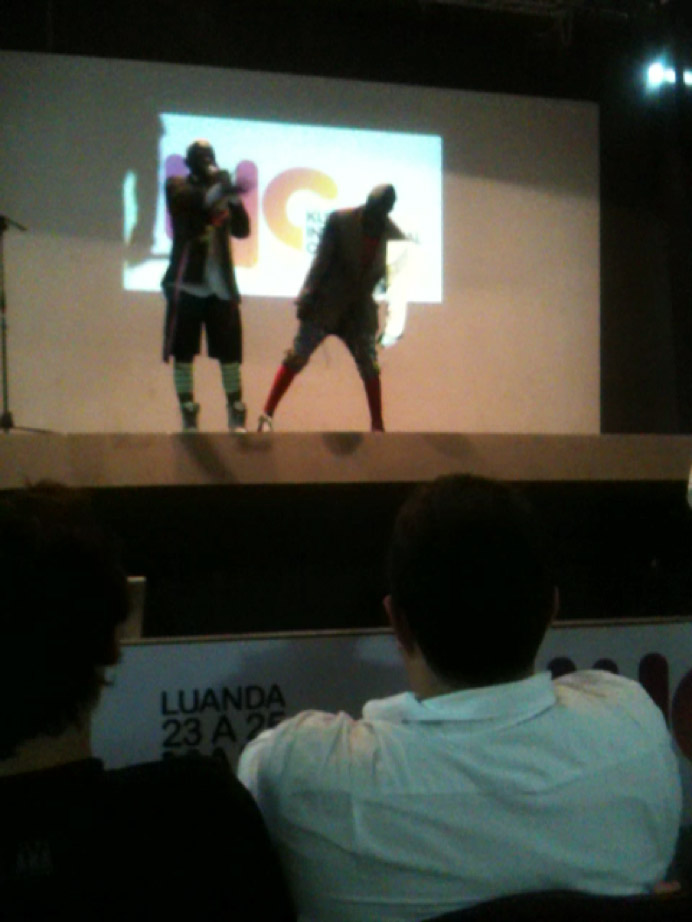
Stefanie’s intent was to spark a group discussion on the epistemologies of dance research, and she certainly succeeded. Based on the collective preparation of Bakka and Karoblis’ essay, ‘Writing a Dance: Epistemology for Dance Research’, the Moving Group worked through certain queries she had about ‘the interactive video interview’ technique, and also brought together the perspectives of different dancer-researchers present to range over a number of questions that we have in common, whether we work with kuduro, salsa or Afro-Brazilian dance forms. This conversation led us to reflections on models of transculturalism, the accessibility of dance knowledge in master-pupil-relationships, and the function of secret knowledge here.
What value is added when the researcher immerses herself in dance situations? We strove to reach beyond the insights that a) the point of learning a dance is not (necessarily only) to be a good dancer but to gradually ask better questions and b) that dancing mobilises corporeal knowledge and triggers memories contained in (other) bodies, which in turn enrich research conversations.
Compatible with Bakka & Karoblis’ (auto-)phenomenological approaches, our Associated Researcher Brigid McClure suggested that the value of auto-ethnography lies in the need to find a way to think about and verbalise one’s own experience on the dance floor. Dancing (and learning to dance) also becomes the way to understand better diverse forms of dance pedagogy- teaching through repetition and discussion; pedagogy that is crystallised, and pedagogy in the making; and the movement between oral and written pedagogical forms.
We arrived at collective reflections of how to productively deal with the fact that each instantiation of a dance differs from its supposed ideal, how linguistic concepts of langue and parole can helps us grapple with this problem, and how to address attempts to standardise or brand dance.
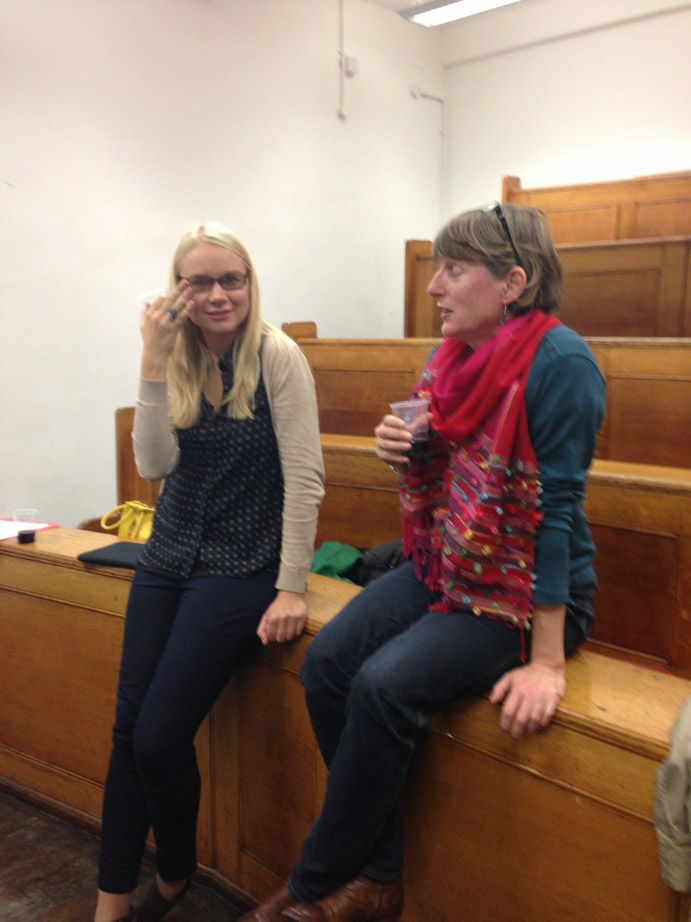
Finally, we concluded that being a dancer is lot more precarious than being a singer. That was hardly going to prevent the group (which included dancers as well as singers) from continuing the evening at Bar Salsa’s legendary Monday night! Over some great tapas, we watched, analysed and joined on the floor the best of London’s salseros and salseras, who come here for their weekly fix of high quality music and dance.

